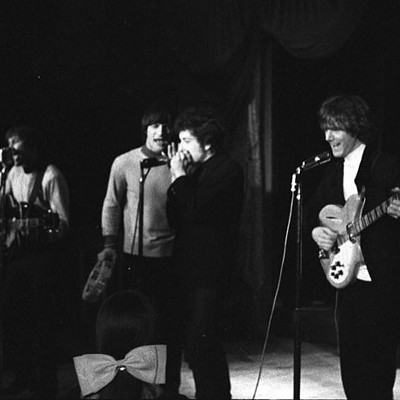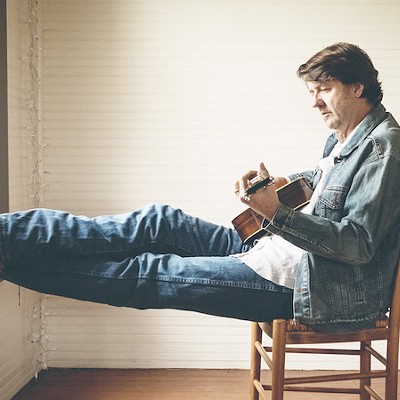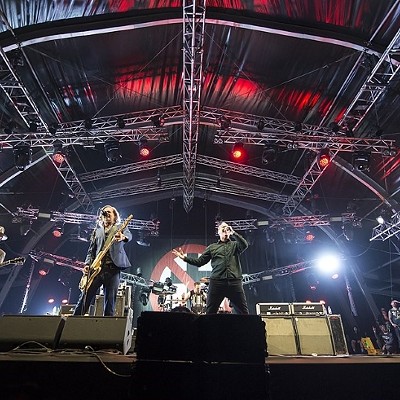As I cruised by the world's second-largest refinery, which sits squat on the east side spilling plumes into the air like a William Blake nightmare, I had an epiphany. I just penned a new book about the links between music and conscience, so the deaths of David Bowie, Prince and Lou Reed (just a few years back) feel like a disheartening blow to the music community...Yet, their real strengths suddenly gripped me. Though we live in the era of dead heroes, their codes of being, especially late in their lives, are worth emulating.
For a generation born throughout the 1950s and 1970s, losing this trio of proto-punk, art-rock and funk-soul pioneers is akin to losing a whole generation of trailblazing painters or cinematic auteurs in one fell swoop. Each of these mavericks represented a game changer of sorts, each adamantly “flipped the script,” each became a paradigm shifter who acted as a force multiplier. In the wake of their indelible songs, they enabled a million others to pick up instruments and seek visions often considered too outsider, too marginal, too unorthodox for a cookie-cutter FM radio mentality, which they reshaped.
They bestowed lessons aplenty, too, and not just of the musical variety. First, each subverted gender norms that are still quite shocking, even to some millennials. For instance, note the queer ambiguity of 1970s butch swagger in dark sunglasses Lou Reed; the free-floating, sexually bent, here-today-gone-tomorrow personas of David Bowie; or the pliable genderfuck of Prince, who could mesmerize a Super Bowl halftime crowd but never looked anything like a football player or a typical fan. For each, gender and genre seemed to exist in a state of flux or fluidity. They redefined both perennially according to their own senses of self. In comparison, recently felled icon Lemmy of Motörhead seemed like an über-hetero who played signature metal by the book, albeit with consummate whiplash style. He was the raspy, ragged daddy of jet-fueled rock and roll. They were idiosyncratic icons with a cause — do it different, do it bold, do it weird, don't be sold.
Bowie, Prince and Reed understood how to harness the potential of capitalism to penetrate the mainstream without shattering or crushing their own artistic vision, which demanded versatility, experimentation and honesty. They made music large and small (from grand ideas to sonic postcards), deeply personal (Bowie’s grieving swan song Blackstar) and somewhat impersonal and impenetrable (shards of his Berlin period), highly curated (Lou Reed’s Magic and Loss) and raw to the bone (Velvet Underground’s first album), both of-the-time (Prince’s pointed “Baltimore”) and out-of-time (Prince’s sorrowful “Purple Rain”).
Last, each became a philanthropic driver, evoking a moral core and shaping a humanitarian impulse that is often overlooked in rock and roll history-telling. In public, Lou Reed gigged for the Bridge School and the Jazz Foundation of America, Bowie was a keystone of the Concert for New York City and advocated for Keep a Child Alive, while behind closed doors, powerful Prince propelled Green for All and #YesWeCode. They saw hope in outliers – disadvantaged kids surviving the daily grind — and in real communities that can prove resilience is a powerful force.
Sure, each dabbled in debauchery (although "dabbled" may be a flimsy word here), and while two committed some irritating and troubling social pratfalls, especially cantankerous Reed (accused of racial slurs and sexism) and Bowie (once telling Playboy, "I believe very strongly in fascism"), Prince has been routinely admired for mentoring women musicians and attracting the respect of feminist fans. Yet, in recent memory, all had undergone a conversion of sorts. Prince joined the Jehovah’s Witnesses, Bowie found a spiritual partner and lover in Iman, and Lou Reed discovered tai chi and married equally enduring Laurie Anderson. A deeply rooted stability, a shared sense of power and attempts at serenity became the new normal. The Dionysian clichés of music culture mined in shows like HBO's Vinyl were well behind them as their music embodied even greater finesse, focus and rejuvenation.
Indeed, by the time of their deaths, behind these chameleons existed a profound conscience and consciousness worth knowing as well as any titanic lyric or guitar hook. That codex, which they left behind, will remain.
The Continental Club hosts a Prince tribute, "Party Like It's 1999," tonight featuring members of the Tontons, Buxton, Vodi, Mikey & the Drags, Dollie Barnes and more. Doors open at 9 p.m.
Support Us
Houston's independent source of
local news and culture
account
- Welcome,
Insider - Login
- My Account
- My Newsletters
- Contribute
- Contact Us
- Sign out
[
{
"name": "Related Stories / Support Us Combo",
"component": "11591218",
"insertPoint": "4",
"requiredCountToDisplay": "4"
},{
"name": "Air - Billboard - Inline Content",
"component": "11591214",
"insertPoint": "2/3",
"requiredCountToDisplay": "7"
},{
"name": "R1 - Beta - Mobile Only",
"component": "12287027",
"insertPoint": "8",
"requiredCountToDisplay": "8"
},{
"name": "Air - MediumRectangle - Inline Content - Mobile Display Size 2",
"component": "11591215",
"insertPoint": "12",
"requiredCountToDisplay": "12"
},{
"name": "Air - MediumRectangle - Inline Content - Mobile Display Size 2",
"component": "11591215",
"insertPoint": "4th",
"startingPoint": "16",
"requiredCountToDisplay": "12"
}
,{
"name": "RevContent - In Article",
"component": "12527128",
"insertPoint": "3/5",
"requiredCountToDisplay": "5"
}
]
KEEP THE HOUSTON PRESS FREE...
Since we started the Houston Press, it has been defined as the free, independent voice of Houston, and we'd like to keep it that way. With local media under siege, it's more important than ever for us to rally support behind funding our local journalism. You can help by participating in our "I Support" program, allowing us to keep offering readers access to our incisive coverage of local news, food and culture with no paywalls.
David Ensminger
Trending Music
- Country Rock Thrives with Gene Clark and Flying Burrito Brothers for Record Store Day
- Bruce Robison Is The Eternal Song Hunter
- Low Cut Connie Keeps One Foot In The Gutter
-
Sponsored Content From: [%sponsoredBy%]
[%title%]

Don't Miss Out
SIGN UP for the latest
Music
news, free stuff and more!
Become a member to support the independent voice of Houston
and help keep the future of the Houston Press FREE
Use of this website constitutes acceptance of our
terms of use,
our cookies policy, and our
privacy policy
The Houston Press may earn a portion of sales from products & services purchased through links on our site from our
affiliate partners.
©2024
Houston Press, LP. All rights reserved.




